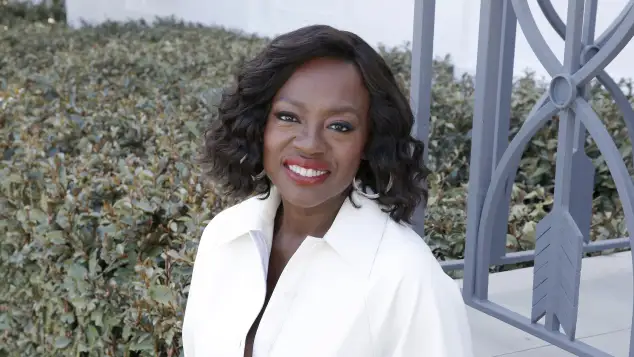Viola Davis is sharing with fans everywhere how her existence in this world is one constant protest. Davis is one actress we can't forget, serving us powerful moments both on the big and small screen.
Viola Davis talks roles and racism for Black women in Hollywood
Appearing on the cover of Vanity Fair, Davis explores what it's like being a Black woman in Hollywood, and how representation is important - not only in the film industry but in politics as well.
"I feel like my entire life has been a protest," Davis says.
RELATED: 8 FACTS ABOUT THE TALENTED VIOLA DAVIS
"My production company is my protest. Me not wearing a wig at the Oscars in 2012 was my protest. It is a part of my voice, just like introducing myself to you and saying, ‘Hello, my name is Viola Davis,'" she adds.
Davis then goes on to share the support she received from other powerful Black women, including her sisters and mother.
"When I was younger, I did not exert my voice because I did not feel worthy of having a voice," she said. "[They] looked at me and said I was pretty,” she says. “Who’s telling a dark-skinned girl that she’s pretty? Nobody says it."
"The dark-skinned Black woman’s voice is so steeped in slavery and our history. If we did speak up, it would cost us our lives. Somewhere in my cellular memory was still that feeling—that I do not have the right to speak up about how I’m being treated, that somehow I deserve it. I did not find my worth on my own," she said.
Davis then goes on to divulge what it was like to find the right roles in the film industry and the lack of opportunity for Black folks in film.
"There’s not enough opportunities out there to bring that unknown, faceless Black actress to the ranks of the known. To pop her!" she stated, mentioning the likes of Emma Stone, Reese Witherspoon and Kristen Stewart, saying that while they are all "fabulous white actresses," there is a disparity between white roles and Black roles.
She mentions for these actresses, there was "a wonderful role for each stage of their lives, that brought them to the stage they are now. We can’t say that for many actors of colour."
When it comes to pay and harassment on set, Davis also reveals there are disparities there, too.
"We know as women when you speak up, you’re labelled a bitch—immediately. Unruly—immediately. Just as a woman. As a woman of colour, there is very, very, very little you have to do. All you have to do is maybe roll your eyes, and that’s it," she said.
Viola Davis reflects on The Help, her Oscar-winning performance
Winning her an Oscar for her role as "Aibileen," Davis reflects on her time filming The Help, a film she now regrets, saying she was a "journeyman actress trying to get in."
"Not a lot of narratives are also invested in our humanity,” she says. “They're invested in the idea of what it means to be Black, but…it’s catering to the white audience."
"The white audience at the most can sit and get an academic lesson into how we are. Then they leave the movie theatre and they talk about what it meant. They’re not moved by who we were," she continued.
"There’s no one who’s not entertained by The Help. But there’s a part of me that feels like I betrayed myself, and my people, because I was in a movie that wasn’t ready to tell the whole truth," she admits.
The film she says, like many others, is "created in the filter and the cesspool of systemic racism."
Voila Davis can be seen on the cover of August's issue of Vanity Fair, available on newsstands and online now.








